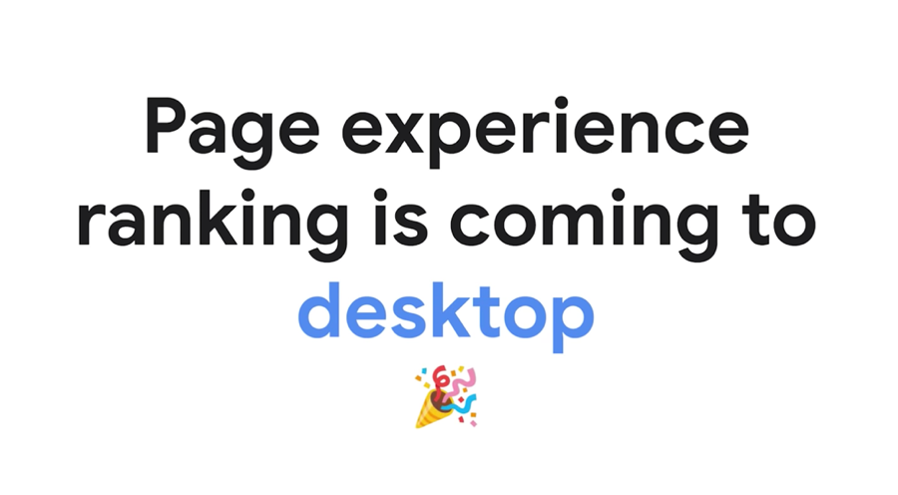
May has been an informative month for organic search on Google albeit not very exciting! We have seen Google reveal a few hints that might help Search Engine Optimisers and SEO agencies better optimise their websites.
From the delayed Google Page Experience Update to increased SERP volatility, we will be compacting and overviewing the most important Google updates throughout the month of May.
Google page experience update delayed
Most SEOs were both panicking and preparing for a major update known as the “Google Page Experience Update”. This was announced last November and was supposed to hit in May.
This update combined Core Web Vitals with Google’s existing search signals. These signals included mobile friendliness, HTTPS, Security/Safety and, of course, Core Web Vitals.
Just a reminder, Google’s Core Web Vitals looks at the following metrics:
- Loading – Largest Contentful Paint (LCP)
- Interactivity – First Input Delay (FID)
- Visual Stability – Cumulative Layout Shift (CLS)
Many sites were preparing their sites to load at lightning speeds in anticipation for this potentially large update.
However, Google announced the update is delayed and will follow a gradual roll-out starting mid-June 2021.
Google page experience not only coming to mobile
Around the middle of May, Google also announced that thus page experience update was coming to desktop in the video below (around the 7:11 mark).
It was believed the update would focus heavily on mobile performance although we now know it will be important to get the desktop version of your site ready too!

4 May – Increase in PAA sections being displayed in SERPs
Google users saw an unexpected and sudden increase in the number of People also ask sections being displayed in SERPs. This change was seen globally and impacted almost all niches.

(Graph shows the month of May)
PAA often keep users from clicking through to sites as the answer is already displayed within results pages.
We have seen Google gradually increasing efforts to keep users within their own platforms, dissuading users to click through to external sites.
However, as SEOs, we should see this as an opportunity to capture even more of the results page “real estate”. Optimising for Google’s featured panels such as featured snippets, Google Shops and, of course, PAA is becoming increasingly important.
5 May – Adding images to pages doesn’t directly impact ranking
An insight was made by Senior Webmaster at Google, John Mueller on Twitter.
Contrary to popular belief, it seems that the inclusion of images on a page doesn’t have a direct positive impact on the page’s rank.
However, like many things in SEO, images can have a positive impact on metrics that Google use for rankings. Metrics such as site dwell time and engagement.
Including engaging and relevant images can be compared to meta descriptions. Although they don’t directly impact rankings, they can help in increasing click-through-rate and increase rankings that way.
12 May – Age of a site means nothing to Google *kind of*
In May, John Mueller, posted a tweet suggesting that site “age means nothing” in regard to a site’s rankings and ranking potential
This tweet does contradict previous statements from both Google and findings from external studies.
It makes sense that Google would temporarily “pseudo-penalise” sites that are very new as a spam-fighting measure to counter “churn-and-burn” sites popping up all over the place. This point is supported by an older video from Google below.
If your site is very young, it is likely you won’t see much action on SERPs for a while. If your site has been around for at least a few months, age shouldn’t be a major factor.
23 May – SERP volatility spike
A large spike in SERP volatility occurred on 23rd May followed by rapid cool off. It was difficult to establish which niches and query types were hit.
Owing to this volatility happening over a weekend, many webmasters had their eye off the ball so the overall conversation about this potential update was overlooked.
Some within the community claim the update hit review-based queries such as “top clothes brands”.
Some webmasters had theories of Google favouring US sites within US search results. The movement in SERPs could be Google turning their attention on furthering its focus on local results.
If this is the case, local SEO is becoming increasingly important. Optimising both off-page and on-page SEO with location in-mind should be a priority.
25 May – Mobile indexing still not complete
It became apparent that Google’s “mobile-first indexing” has still not been completely migrated from desktop from the following tweet.
Once again, a site’s desktop version shouldn’t be overlooked when bettering performance and optimisation.
This update has been running for several years now so the end may not be in sight just yet!
26 May – Clarification on href lang vs geo targeting
An insightful piece of guidance from Google’s SEO office-hours explained the difference between href lang and geo targeting.
John Muller explained that GEO targeting (e.g., most healthy fruits to eat UK) for same language international site variations (For example, US, UK, Australia) is more useful than href lang when it comes to increasing ranking.

This makes sense as Google bots will be looking for relevancy signals within on-page content. If Google understands the page’s content is focused on a certain region, the page is more likely to rank for users searching from those locations.
However, href lang shouldn’t be overlooked. We have seen this as a useful tool to help Google understand the connection between different language variations of the same page.
If your site has different regional variations, our suggestion is to make sure that your sites have included both comprehensive href lang tags and is optimised well for local search queries.
It also wouldn’t hurt to include these tags on variations between same language page variations – you don’t want Google to mistakenly classify both pages as duplicate content…
Summary
This month, Google has given significant insight into what helps rank a page and what doesn’t. A good example as to why you should always pay attention to statements made by those working at Google Search.
Even a two-sentence tweet can give you previously unknown insight into Google’s ranking algorithm.
Reacting quickly to these snippets of information can help you gain an edge over your SERP competitors and outrank them!


